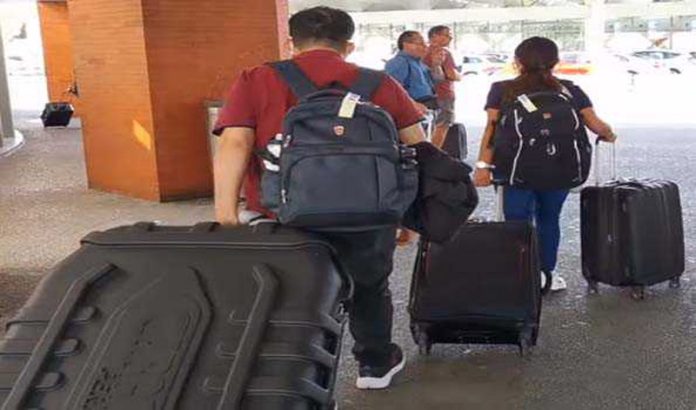KOLKATA, Jan 15: As the Union annual budget approaches, the travel and tourism sector has urged the government to bolster the
current growth with targeted measures like granting the long-requested industry status, which will further encourage investment and development in the hospitality sector in India.
” The travel and tourism sector is a vital pillar of India’s economy,
contributing over 9 percent to employment and supporting 40 million
jobs ? a figure set to exceed 62 million in the next decade,”
according to MakeMytrip Group CEO and co-founder Rajesh Magow.
The sector’s role in driving economic inclusivity, empowering
communities, and boosting economy at the grass roots level makes it
indispensable to the next chapter of India’s growth story, Magow said
in a statement on Wednesday.
He said allowing GST credit for hotel construction and rationalizing
GST rates will help reduce the overall cost of accommodation and
stimulate domestic tourism and positively impact inbound tourism.
” The industry would be delighted if the Finance Minister allocates
resources for an international campaign under the Incredible India
initiative,” he remarked.
The sector is outpacing the overall economy, with domestic tourism
growing at a double-digit rate, driven by rising incomes, a burgeoning
middle class, and a preference for travel experiences. The government
investments in roads, airports, and railways have been game-changers,
enabling faster travel and unlocking new destinations. Long weekends
are now synonymous with travel ? a testament to the sector’s growing
momentum.
The homestay sector is growing well in India, and this burgeoning
sector needs support, he added.
The government’s clarification in the last budget, stating that any
rental income earned by the owner of residential house property shall
be treated as ‘Income from House Property’ instead of ‘Business
Income,’ can adversely impact the growth of homestays, Magow pointed
out.
” We request the Minister to review this point,” he continued.
Besides, there are a couple of other operational, and disparity
related GST issues faced by Online Travel Agents (OTAs). Mandatory
state-wise GST registration with a physical presence in every state is
adding to the administrative costs and management overhead
unnecessarily. Since the nature of OTAs business is online, if
registration in different states can be allowed using their central
head office address will help in streamlining operations, reduce
costs, and improve efficiency.
” Moreover, this requirement will help put Indian OTAs on level
playing field against international online players who are not bound
by similar rules,” he maintained.
Similarly, there is an existing disparity in the GST charge for
customers booking a non-AC bus through an online booking platform
where customers are charged 5% GST, while direct bookings made with
the bus operator there is no GST charge. This inconsistency undermines
the objective of the Digital India initiative and is against the
spirit of digital India.
“The government has laid a strong foundation ? this budget is an
opportunity to propel the sector into its next phase of growth,” Magow
concluded.
(UNI)


